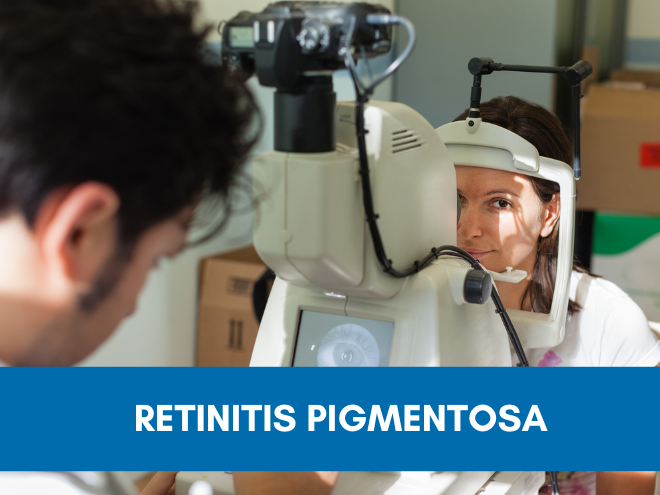Retinitis Pigmentosa (RP) is a group of inherited eye conditions that lead to progressive vision loss. Affecting the retina, this disease can cause difficulty seeing at night and a gradual loss of peripheral vision. Though it is a challenging condition, recent advances in research and treatment are bringing new hope. The latest breakthroughs, with a special focus on natural treatments for Retinitis Pigmentosa and the role of herbal supplements in managing this condition.
Retinitis Pigmentosa
Retinitis Pigmentosa is a degenerative disease that primarily affects the rod cells in the retina, responsible for night vision. Over time, the disease can also impact cone cells, leading to a loss of central vision and, in severe cases, complete blindness. While there is no cure for Retinitis Pigmentosa, various treatments aim to slow down its progression and improve the quality of life for those affected.
The Role of Natural Treatment for Retinitis Pigmentosa
Natural treatments for Retinitis Pigmentosa have gained popularity as people seek holistic approaches to managing their health. These treatments often focus on dietary changes, lifestyle modifications, and natural supplements that support eye health and potentially slow the progression of the disease.
1. Antioxidant-Rich Diet
A diet high in antioxidants is believed to protect the retina from oxidative stress, which plays a role in the progression of RP. Foods rich in vitamins A, C, and E, as well as zinc and omega-3 fatty acids, can support overall eye health. Leafy greens, carrots, sweet potatoes, and fish are excellent choices to include in your diet.
2. Omega-3 Fatty Acids
Omega-3 fatty acids, commonly found in fish oil, have been shown to have a protective effect on the retina. Regular consumption of omega-3s may slow down the progression of RP by supporting the health of photoreceptor cells in the eye.
3. Herbal Supplements for Retinitis Pigmentosa
Herbal supplements are increasingly being explored as a Natural Treatment for Retinitis Pigmentosa. Specific herbs are known for their antioxidant and anti-inflammatory properties, which may benefit those with RP.
Promising Herbal Supplements for Retinitis Pigmentosa
Several herbal supplements are gaining attention for their potential to support eye health and slow the progression of Retinitis Pigmentosa. Here are some that have shown promise:
1. Ginkgo Biloba
Ginkgo biloba is renowned for improving blood circulation, particularly to the brain and eyes. Some studies suggest that Ginkgo biloba may help preserve visual function in individuals with RP by enhancing blood flow to the retina.
2. Bilberry
Bilberry is rich in anthocyanins, powerful antioxidants that support eye health. It has been traditionally used to improve night vision and may help protect retinal cells from damage caused by oxidative stress.
3. Turmeric (Curcumin)
Curcumin, the active compound in turmeric, has potent anti-inflammatory and antioxidant properties. It may help reduce inflammation in the retina and protect against cell damage, making it a potential herbal supplement for managing RP.
4. Grape Seed Extract
Grape seed extract is another potent antioxidant that may benefit those with Retinitis Pigmentosa. It supports eye health by protecting retinal cells from oxidative stress and improving blood circulation.
The Future of Retinitis Pigmentosa Treatment
While natural treatments and Herbal Supplement for Retinitis Pigmentosa offer promising support for managing Retinitis Pigmentosa, ongoing research is continually uncovering new potential therapies. Gene therapy, stem cell therapy, and retinal implants are some of the cutting-edge treatments currently being explored.
1. Gene Therapy
Gene therapy is a rapidly advancing field that offers hope for treating inherited conditions like RP. By delivering healthy copies of the gene to the retina, gene therapy aims to correct the underlying cause of the disease and potentially restore vision.
2. Stem Cell Therapy
Stem cell therapy involves the use of stem cells to regenerate damaged retinal cells. Researchers are investigating ways to replace lost or damaged photoreceptor cells with healthy ones derived from stem cells.
3. Retinal Implants
Retinal implants, also known as bionic eyes, are devices designed to restore some degree of vision to those with RP. These implants work by converting light into electrical signals that stimulate the remaining retinal cells, providing a form of artificial vision.
Conclusion
The journey to finding a cure for Retinitis Pigmentosa is ongoing, with significant advances being made in both conventional and natural treatments. Incorporating a diet rich in antioxidants, omega-3 fatty acids, and herbal supplements can play a crucial role in managing the progression of RP. While these natural treatments offer hope, it’s important to consult with a healthcare professional before starting any new regimen. As research continues to evolve, the future holds even greater promise for those living with Retinitis Pigmentosa.




